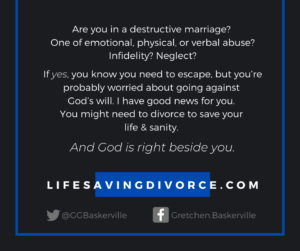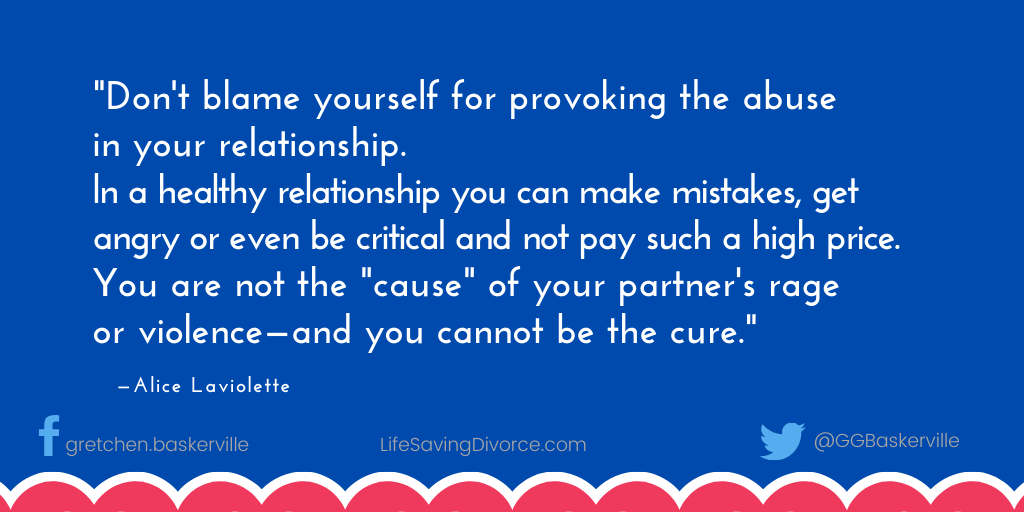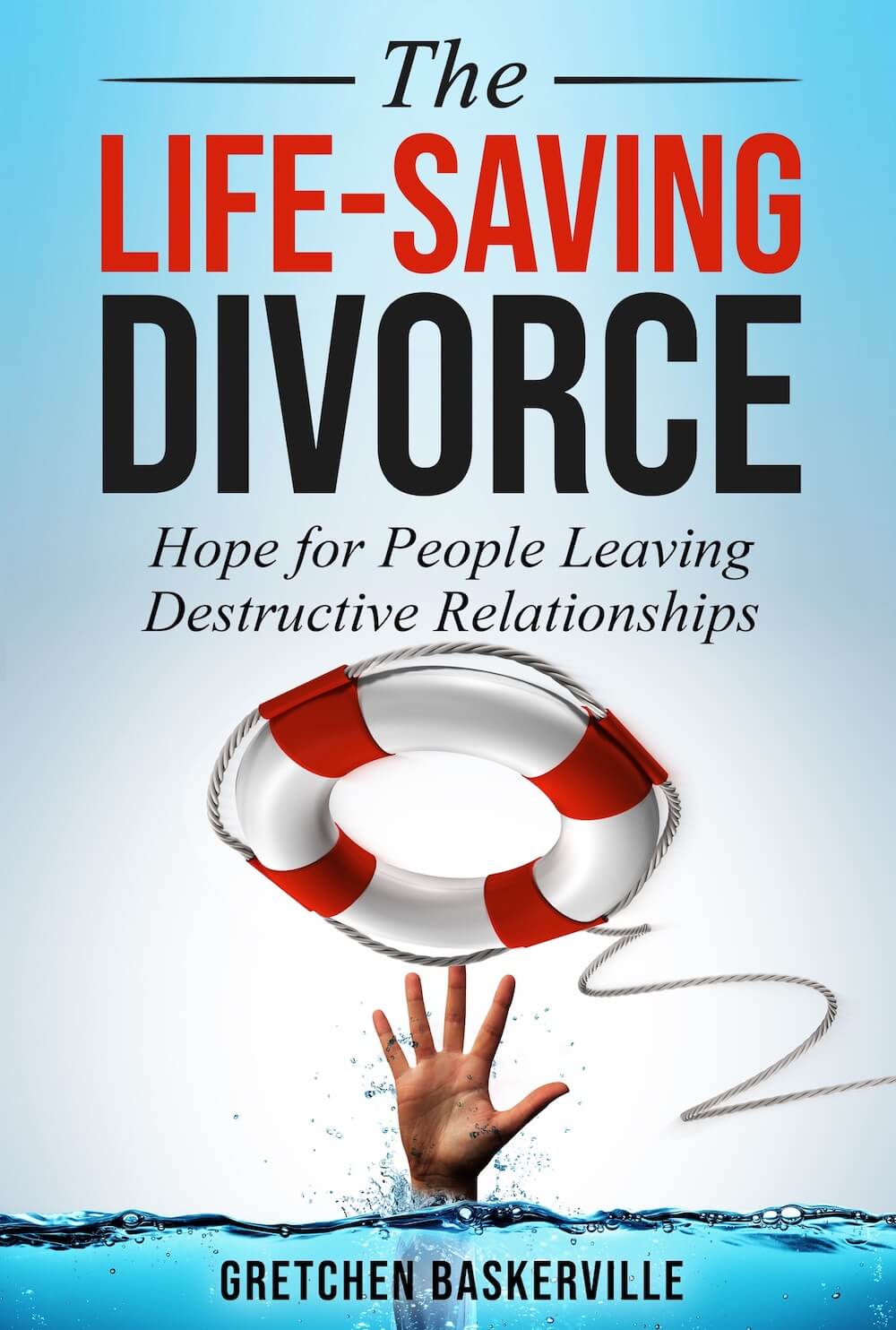I’ve Had Such Bad Luck in the Past; I Don’t Think I’ll Ever Have a Healthy Relationship
I posted this image on Facebook and heard back from a recently divorced man who wondered if he can ever have a healthy relationship. He said he blamed himself so long for his wife’s outbursts, he cannot think any other way. All these years he has taken the responsibility for the marital happiness. And if his wife isn’t happy, he fully believes it’s his fault. He is stuck, he said, always believing his wife’s emotions are his to tend.
My Response
(First, let me say I am not a licensed therapist, I am a Christian lay divorce recovery leader. But I do know the power of the messages we Christian youth were taught about marriage. So here is my reply to this man, slightly edited for the context of a blog)
“Hi, my friend, I can easily believe you feel that way! It really does take a long time to get that false narrative out of our minds.
If you combine the messages we got from church, Christian marriage books, and radio programs, AND the blame-shifting we got from our spouses, we discover we’ve lived nearly all our lives with the belief that one spouse—the invested spouse—can single-handedly fix the marriage and make everything all right. No wonder our hearts and minds cannot grasp the truth! For some of us, we bought this for 20, 30, 40 years! You can’t snap out of that overnight.
Here is a list of 27 messages we were told. We’ve heard them a million times. It’s no surprise that we believe them at the core our our being. Sadly, however, these messages aren’t true for everyone, certainly not the “invested” spouse, the one who puts time, effort, and money into making the other spouse happy. They might be true for someone who is immature and doesn’t take commitment and responsibility seriously. But that’s not you.
An abusive spouse wants to make you feel that *you* are the cause of their problems, and therefore they are entitled to treat you anyway they want. They don’t take “no” for an answer and they don’t take their fair share of responsibility for making the marriage safe, loving, and respectful. When you lash out, as anyone would, due to this huge inequity, your anger is used against you as proof that “you’re not perfect, either.”
I’d recommend a few things: Obviously first is to get to safety, and get therapy from someone who understands very quickly that you were the *invested* spouse, not the *entitled* spouse.
If you enjoy reading, I suggest “Emotional Blackmail” by Susan Forward, and also read pp. 130-144 in my book. These will help you identify gaslighting phrases when you hear them and develop automatic responses to them.
Years of confusion in a painful marriage make people deaf to gaslighting messages. And you need to hear and identify them again. The book “Emotional Blackmail” will give you polite-yet-firm phrases to say when you are around entitled people, at home, at church, at work, and in the neighborhood. It will help you start to rebuild you self-worth and boundaries.
Here’s a link to a 3-part video of one abused wife (a former pastor’s wife with four children) who wanted to start dating again. She had the same concerns. It’s a long video with a transcript, and the last 30 minutes (Part 3) are pure gold.
Note: I’m indebted to Bob Hamp MFT for the concept of the “invested” spouse.
Popular posts:
Sure, An Innocent Spouse Can Remarry. But I’m at Fault Too!
One Woman’s Story: Adultery, Prayer, and the Bible
The Bible Doesn’t Say “God hates Divorce”—it’s not in the Hebrew text
Bible verses that condone divorce for serious reasons, including mental abuse.
The 27 myths of divorce that aren’t likely true for godly Christians.
“He Never Hit Me”: Interview with a woman whose husband emotionally abused and neglected her
10 Turning Points: What is the “Last Straw” for Most Devout Christians. See One, Two, Three.
Children and Divorce: Why life-saving divorce is very good for children
How do I start dating again? I worry I’ll never find anyone.
Examples of 150 examples of types of abuse (physical, emotional, sexual, financial, and neglect) and explaining the term “gaslighting,” along with many first-person stories, read Chapter 4 in the Life-Saving Divorce.
For a diagram of the Duluth Wheel of Power and Control and The Abuse Cycle, read Chapter 4.

For more on the myths of divorce, buy the Life-Saving Divorce.
As an Amazon Associate I earn from qualifying purchases.



 :
:
 Buy PDF
Buy PDF